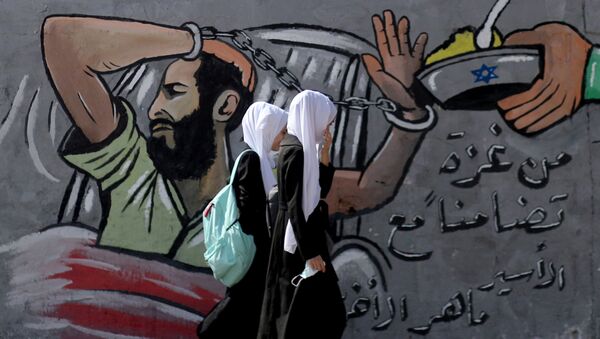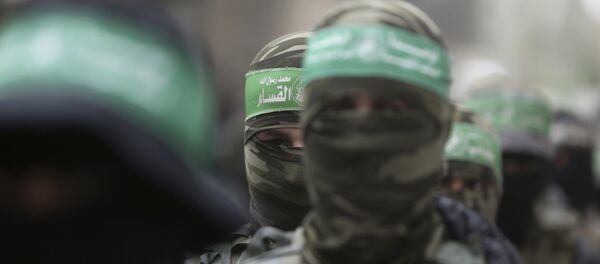The situation seems to be getting out of hand in the densely populated Gaza Strip, where authorities are struggling to implement social distancing and where around 600 new coronavirus cases have been registered on Wednesday, the highest daily rate so far.
Since the outbreak of the pandemic in March, more than 11,000 Gazans have been infected with the virus, and 50 have died from the disease.
Measures Taken
In an attempt to contain the spread of the virus, Gaza authorities are now mulling over the possibility of imposing a full lockdown of the enclave.
Last week, the Hamas-run health ministry warned that if cases continued to rise, authorities would have no other choice but to pursue "a progressive return to total lockdown".
The only problem with this solution is that it might drain the already struggling Gazan economy and might drive many into unemployment and poverty.
The impoverished Strip has been in that position before. In March, after authorities detected the first few cases of the virus, they introduced a number of restrictive measures to curb COVID-19.
Governmental and public institutions were shut down, as were the mosques and private companies, a move that bloated Gaza's unemployment rates, which currently exceed 49 percent.
Second Lockdown Looming
Now, however, with another lockdown looming, Gazans are afraid that additional restrictions might be lethal for many, who are struggling to stay afloat.
But the lockdown, if it ends up taking place, is also set to damage the relatively well-off population of the Strip that managed to survive the first wave of restrictions.
Hamza Jamal, a 40-year-old resident of Gaza, owns a mobile store in the city. Before the outbreak of the pandemic, that business brought him thousands of dollars a month and enabled him to lead a relatively comfortable live in the enclave, which has been cut off from the outside world since 2007, when Hamas -- branded a terror group by Israel -- seized control over the area, forcing the Jewish state to strengthen its borders around the Strip.
Recalling the first wave of the pandemic, Jamal says it had dealt a severe blow to his lucrative business.
"Back then, I was forced to stay at home. My 20 employees were forced to do the same but I continued to pay their salaries. People who'd lost their jobs didn't want to spend money on phones. The result was that my losses in that period stood at around $100,000."
Shortly after authorities lifted the restrictive measures enabling Gazans to go back to work, Jamal says he was able to compensate himself for the losses he'd suffered. But another lockdown could be lethal for his company.
"I have a lot of debts. I borrowed money to be able to keep my head above water and I need to work for six months without interruption to be able to pay everything off. Otherwise, I risk losing everything I have."
Jamal is far from the only business owner who has been hurt by the pandemic; earlier this week Palestinian sources reported that more than 60 percent of businesses in the West Bank and Gaza have suffered losses.
Authorities are struggling to render assistance to everyone in need. Relying on injections of foreign aid, Hamas doesn't have the money to offer the residents of the Strip much-needed help and Jamal says he hadn't counted on it in the first place.
"During the first wave, they shut down the Strip rather partially instead of closing it completely and that allowed the virus to continue to spread. They will do it again and this means that Gazans will continue to suffer from the virus, and its financial and health repercussions, without having a suitable solution."





